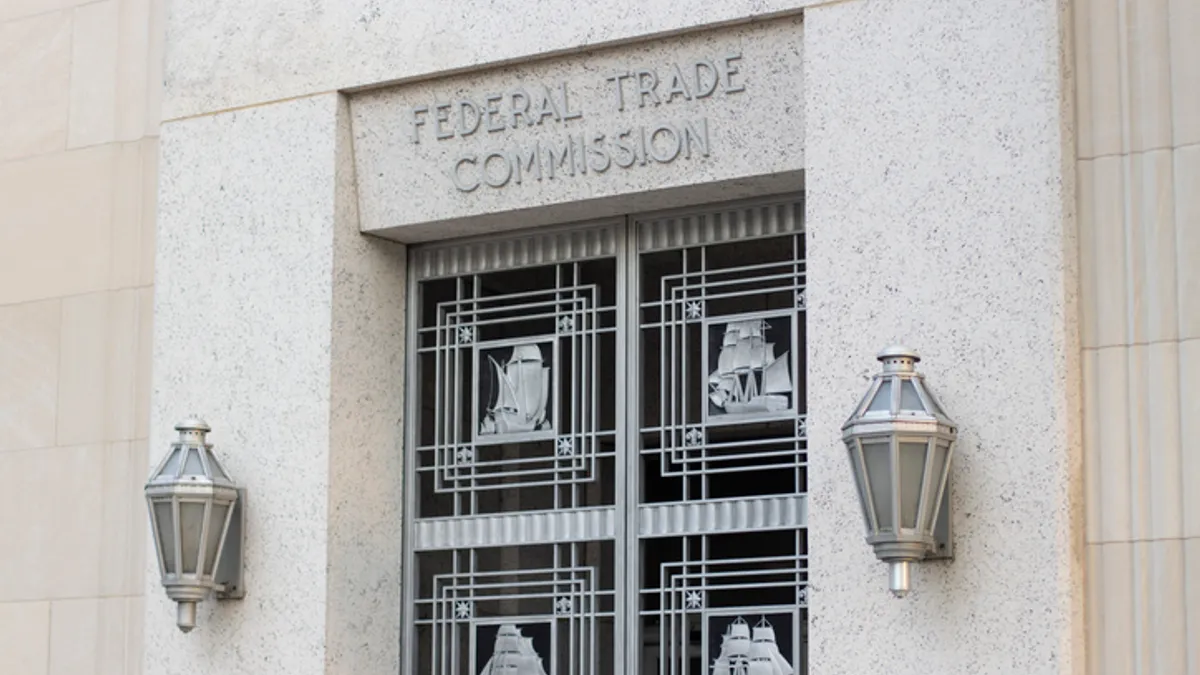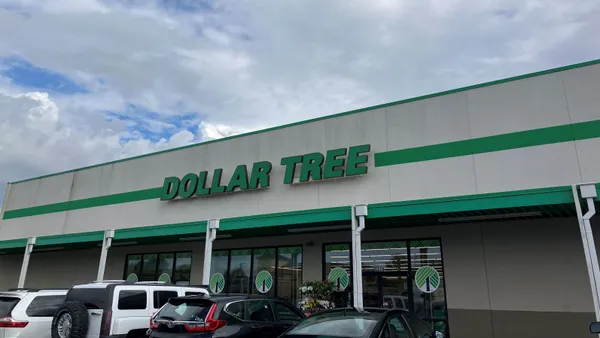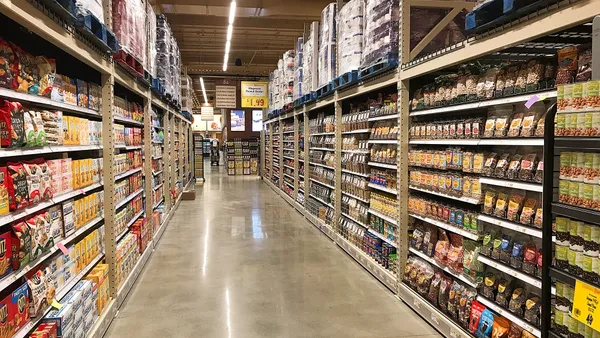Dive Brief:
- The National Grocers Association has asked federal regulators to investigate whether “dominant” retailers are pressuring suppliers to illegally grant them favorable terms as the grocery industry girds for potential disruption linked to tariffs.
- Tariffs could put independent grocers at a disadvantage by triggering higher costs and product shortages that “exacerbate already concerning imbalances in buyer power” that benefit bigger chains at the expense of smaller grocers, the trade group wrote in a Monday letter to the Federal Trade Commission.
- The NGA said it is concerned that tariffs could bring on a reprise of the problems grocers and shoppers faced when the COVID-19 pandemic made it difficult for retailers to keep shelves stocked, the NGA said in the letter.
Dive Insight:
The looming possibility that tariffs could drive prices up and hamper supply chains poses a key risk for independent food retailers because larger grocery chains are in a position to use their market power to distort competition, NGA asserted in its letter to the FTC.
“When costs rise or products become scarce, dominant retailers are in a unique position to extract priority access to inventory and to reject tariff-related price increases, forcing suppliers to push those costs onto smaller competitors,” Chris Jones, the NGA’s chief government relations officer and counsel, wrote in the letter. The issue can impact purchases of equipment like refrigerated units, shelving and point-of-sale hardware in addition to the food and other products that retailers sell, Jones added.
The NGA addressed the letter to FTC Chairman Andrew Ferguson and the regulatory agency’s two sitting commissioners, all of whom are Republicans. The Trump administration dismissed the FTC’s two Democratic commissioners in March.
In addition to asking the FTC to look into whether larger retailers are taking actions that could be deemed anticompetitive, the NGA wants the agency to remind suppliers that they are required by the federal Robinson-Patman Act to provide prices, promotions and services to customers of all sizes on “proportionately equal terms.” The NGA has for years urged the FTC to step up enforcement of the act, which was enacted in 1936.
The NGA said it also wants the FTC to track how disruptions stemming from tariffs impact the way suppliers set prices and allocate goods to retailers.
In the letter, Jones pointed to a regulatory filing last year by Campbell Soup that said that “retailers with increased buying power and negotiating strength are seeking more favorable terms, including increased promotional programs and customized products funded by their suppliers.”
“These demands strain supplier margins and force difficult decisions about where to recover costs — often resulting in higher prices for the very independent grocers that lack negotiating leverage,” Jones wrote.
The NGA has expressed support for the tariffs implemented by the Trump administration but said it views levies on goods from abroad as potentially risky for smaller retailers.
“NGA recognizes that tariffs can be powerful tools in trade and foreign policy; however, broad tariffs on all imported goods, including essential food products, packaging materials, and transportation components, risk exacerbating financial pressures for American families and independent grocers alike,” NGA President and CEO Greg Ferrara said in an April 2 statement.











